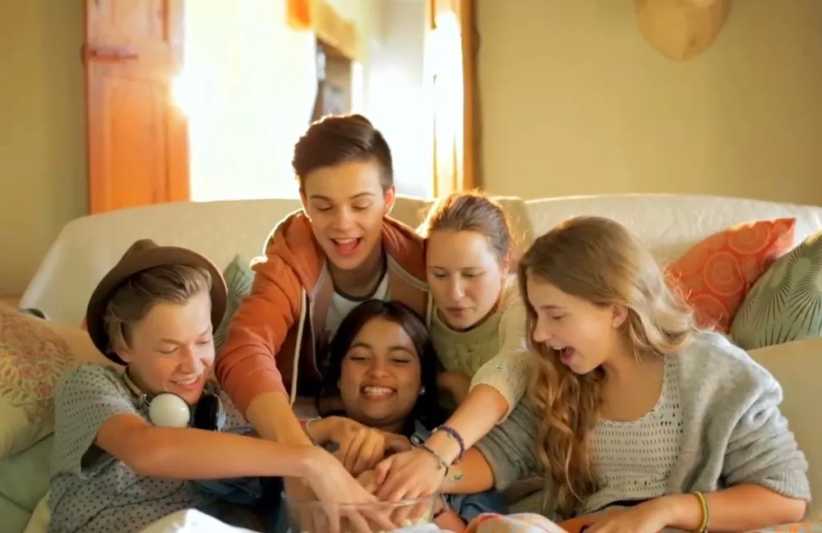
Giving Kids More Independence: Guide for Parents with Expert Advice from Dr. Gillian Sternheim
As scary as it may be to face, it’s a fact of life that kids will grow up and be independent. But independence isn’t something that happens over night. It’s something parents need to foster for their kids over time.
We sat down with Dr. Gillian Sternheim, Child and Adolescent Clinical Director with MindWell Psychology NYC, to talk about how parents can introduce their kids to more independence as they get older.
Psst… Here are expert tips on preventing the summer slide!
It’s normal for kids to become more independent as they get older. How can parents introduce new areas of independence and allow their children to exercise more independence gradually over time?
Becoming more independent is the best way for children to learn about themselves and their world, and eventually leads to making safer, better choices, but finding age-appropriate ways for kids to develop independence can be both scary and a challenge for parents.
However, opportunities for more autonomy exist in everyday life! Parents don’t need to find monumental ways to allow for more independence, and they don’t need to push for independence all at once. The goal is to find balance between support and independence.
Independence can come in many forms and will look different depending on the age of the child and each differing family.
To find new ways to foster independence, parents can think about it from a variety of lenses, including behaviorally, or what kids do on their own, emotionally, or how kids learn to express and process their emotions without parents trying to fix or change the emotion, and cognitively, or the values, beliefs, and goals kids develop for themselves.
For younger children, introducing more choice into the daily routine can be a way for kids to begin developing their sense of self. What do they want to wear for the day? What afterschool activities sound interesting to them? For younger children, it is usually best to offer a few choices, as too many options can be overwhelming.
For older children, the desire for independence can feel daunting for parents, but start small! Include your older child in the discussion of how you can work together towards more independence so that they feel heard. If parents cannot grant what the older child or teen might ask for in terms of independence, acknowledge the desire and try to find a more appropriate, smaller way to begin working towards it.
Lastly, model independence! Model working through difficult emotions, talk out loud when working through a problem. Let your kids see you tackle a challenge independently and also model asking for help appropriately after trying to work it out for yourself.
Opportunities to exercise independence often come up naturally. How can parents encourage their kids to exercise independence on their own?
One of the most important tips I give to parents is to pause before jumping in to fix, change, or alter something about their child. If a child asks for help with something, first suggest trying on their own for a few minutes.
If you are going to jump in, do your best to make it a collaborative experience with your child. Asking reflective questions and letting your child come up with some initial responses will encourage children to look inwards at what they think before looking toward parents or friends for all of the answers, which is fundamental for developing the skills needed to be independent.
How can parents guide their children in the right direction without being overbearing?
A major goal with fostering independence is for kids to begin learning to trust themselves, but this can only be done with appropriate scaffolding from parents. For parents, this means taking a deep breath and remembering that allowing for independence does not mean losing total control! Kids’ brains are not fully developed until they are in their mid 20s, and this means we need to find the balance between promoting autonomy while still providing appropriate support and guidance.
When at a loss for what to do, get curious. Curiosity is always going to be a parent’s best friend when it comes to helping children develop their own inner dialogue and guiding them in the right direction. Simply telling your child what to do and how to do it every time will likely result in your child becoming dependent on you for answers, or backfire and have your child push against your direction.
The key to guiding without being overbearing is to set up expectations in the home and then to give your child space to meet those expectations. When fostering independence, expect some mishaps! It is not a linear road, and children are bound to make mistakes. Try not to jump in at the first sign of struggle.
Discuss a plan for increasing independence, and then allow your child to consistently meet the expectations you have for them before expanding that independence. For example, let your elementary school aged child pack their backpack for school every morning, and require that you check it before leaving the house for the first few weeks.
Once they can show competency in doing this task, you might then move towards limiting backpack checks unless there is a change in schedule, and eventually move toward backpack packing as a completely independent task.
Most importantly, I encourage parents to make sure they have ways of managing their own anxieties that might arise! Work to notice the urge to jump in too quickly or correct your child when they are trying something new independently, and regulate your own emotions. This can be harder than it sounds, and is a vital part of the process of increasing independence in your children.
How do you know when kids are ready for more independence?
Every child is different, and independence is always going to need to be approached on a spectrum. For some kids, it will be very obvious! They might already be pushing boundaries, shutting down your help when offered, or insisting on doing things themselves. For other kids, parents might need to pay closer attention to see the signs.
Look out for the difference between what some psychologists call true competence versus apparent competence. True competence is when a child consistently demonstrate the ability to complete a task or achieve something successfully, whereas apparent competence refers to when a child seemingly manages things on one’s own on the outside, but is not truly doing so successfully.
For example, in the task of packing the backpack for school, parents may expect their child to do this independently, however when they take a closer look, they realize that the child always forgets one piece of homework or packs books for the wrong day of the week.
Rather than castigate your child, this is a perfect opportunity to provide scaffolding around the task to help your child towards independence. This could look like prompting the child with what day of the week it is in order to cue them that they need different books in their bag.
However, if your child consistently demonstrates competency in packing their bag successfully on their own, take a step back and allow your child to take over this task without support! Continuing to scaffold when not needed can lead children to depending fully on their parents or to lose trust in their own abilities.
The teen and pre-teen years often come with testing boundaries and looking for more independence. How can parents handle this time in their kids’ lives?
Testing boundaries in the teen years is a normal part of development. The best advice for parents of teens is to try to foster an environment of open communication. Adolescence is a developmentally appropriate time for separation from parents, so for the most part, parents should not expect a play by play of their teen’s inner life!
However, parents can still create an environment in which teens can reach out to parents without fear of judgment or punishment. Lay the groundwork for your teenagers by offering your support and guidance regularly, but being okay when it is not accepted. Make sure your teen knows they can come to you if and when they need help.
Another way parents can help teens foster independence appropriately is to assume the best of your teenager, rather than the worst. In order to develop trust in themselves, teens need to know that the adults in their life believe they can make good choices and are not waiting for them to fail.
While it may seem like your teenager doesn’t care what you think, they secretly do! Teens who feel supported and trusted, even when making mistakes, will likely be the ones seeking parental guidance when needed and later growing into adults who can make healthy choices for themselves.
An important note, however, is that increasing independence should not come at the expense of safety. If you are concerned your child is engaging in risky or harmful behaviors, the first step is to get curious (always the best first option!) and check in with your teen. Set appropriate boundaries and if your concern remains, seek support from a professional.
Giving kids more independence, especially when it comes to things like going out with friends with no chaperone, can be nerve-wracking for parents. How can parents make sure kids stay safe while they’re exercising more independence?
Not to sound like a broken record, but first and foremost, open communication! Have ongoing discussions in your home about safety and ensure your teen knows they can come to you if they ever need help.
The hard truth is that as parents, we cannot guarantee the safety of our children. What parents can do, however, is institute boundaries and rules in the home that promote safety and security. Remember, while teens may ask for total and complete autonomy, they still need boundaries and guidance in order to make the best decisions, and end up feeling safer and more in control when those rules exist.
While this will look different in every home, set clear expectations in the home about what is acceptable and what is not. That being said, in order to develop trust in your teen, you have to give them the opportunity to show you they can handle something.
Once your teenager is consistent in demonstrating their ability to meet expectations for safety, be flexible in shifting the rules at home where possible to reward your teen’s collaboration and honor their wishes, just don’t drop those rules completely! Always seek to find balance between promoting independence and providing support.














